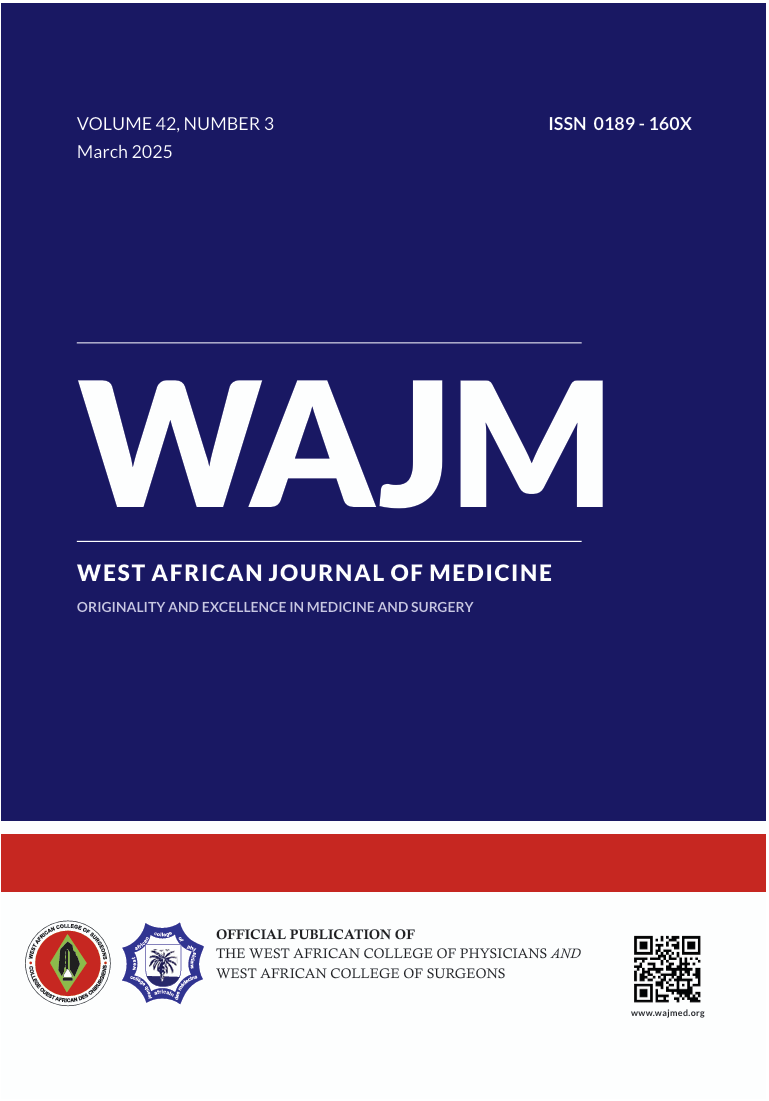ORIGINAL: Cardiovascular Disease Risk Related Knowledge, Perception, Behaviours, and Utilization of Routine Screening Services among a Nigerian Adult Population: A Cross-Sectional Analytic Study
West Afr J Med. March 2025; 42 (3): 178-189 PMID: 40844960
Keywords:
Behaviours, Cardiovascular diseases, Knowledge, Perception, Risk, Screening ServicesAbstract
Background: Cardiovascular disease (CVD) risk preventive interventions should be informed by and targeted at addressing health literacy needs of individuals and communities. This study assessed the CVD risk knowledge, perception, behaviours, and utilization of routine risk screening services among a Nigerian adult population.
Methods: A cross-sectional analytic study design was employed to assess the CVD risk knowledge, perception, behaviours, and utilization of risk screening services among a random multistage sample of 900 adults. Data were collected using an interviewer-administered semi-structured questionnaire adapted from the WHO STEPS questionnaire. Descriptive and inferential analyses of data collected were carried out using the IBM SPSS version 28 software.
Results: The mean age of the study participants was 45.0 (SD = 18.7) years, with 66.8% reporting three concurrent risk behaviours, and 34.2% reporting utilization of at least one CVD risk screening service in the preceding year. Overall good CVD risk knowledge, and perception among the study participants was 77.2% and 19.6% respectively. Education, urban settlement, family history of CVD, good overall CVD risk knowledge and perception were predictors of the utilization of CVD risk screening services.
Conclusion: A significant proportion of the study participants reported multiple CVD risk behaviours, had poor risk perception and utilization of risk screening services despite having a good overall CVD risk knowledge. There is need for concerted efforts by the relevant stakeholder in the State Ministry of Health to target the adult population in the study setting with health promotion information on CVD risk prevention and the benefits of early risk detection.


